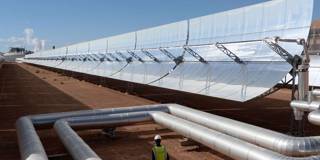
How Africa Can Self-Finance its Economic Recovery
In the wake of a continent-wide recession, a recovery designed and financed largely by Africans is well within reach. While the COVID-19 pandemic is hitting the continent hard, strategies such as asset recycling, continued digitalization, and stronger regional integration can help ensure that Africa is strong enough to fight back.
CASABLANCA – For Africa, the COVID-19 pandemic will likely mean negative GDP growth at unprecedented rates. In addition, several African countries are dealing with the aftermath of a commodity price collapse – another key contributor to current recessionary trends.